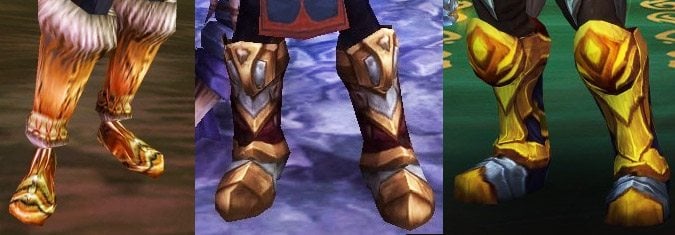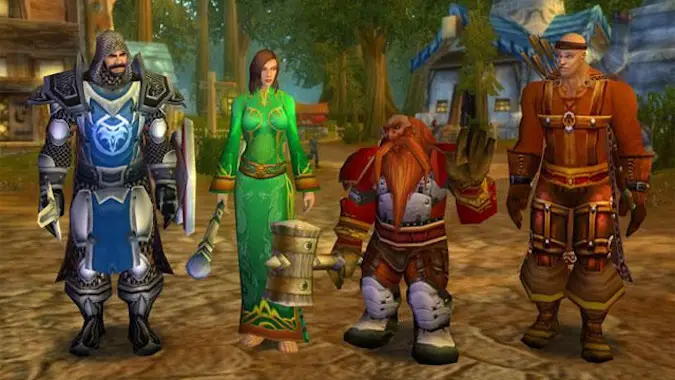Are Mythic raiders that different from the rest of us?
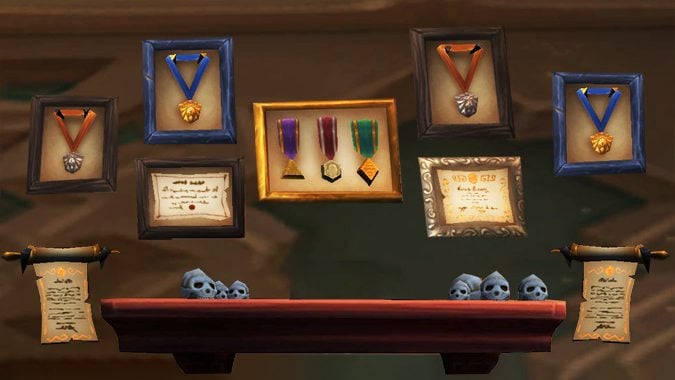
Hello, my name is Zoopercat, and I’m a Heroic raider.
I used to be a Mythic healer — not on a world-first team, by any means, but our team was probably in the middle of the Mythic pack. I raid Heroic these days because I like playing with my friends, and not all of my friends are up for the grinding requirements and practice needed to be successful at Mythic. I don’t even know if I’d be interested in that myself, either.
Beyond the time dedication and the extra practicing, are any of us really that different from each other? Are Normal raiders any different than Heroic or Mythic?
I started asking myself these questions because a lot of people who give advice are top-end Mythic raiders. What are the differences between a Mythic player and myself? Will their advice be relevant to me?
Do Mythic players have different motivations?
How do we answer this? There are a lot of ways to conduct a study to figure this out. I chose to run a survey to find out who had swapped specs or classes during Legion, and why.
Survey-takers were asked to rate how important each of the following reasons was when considering making a spec or class change. The scale on the bottom is a weighted average.
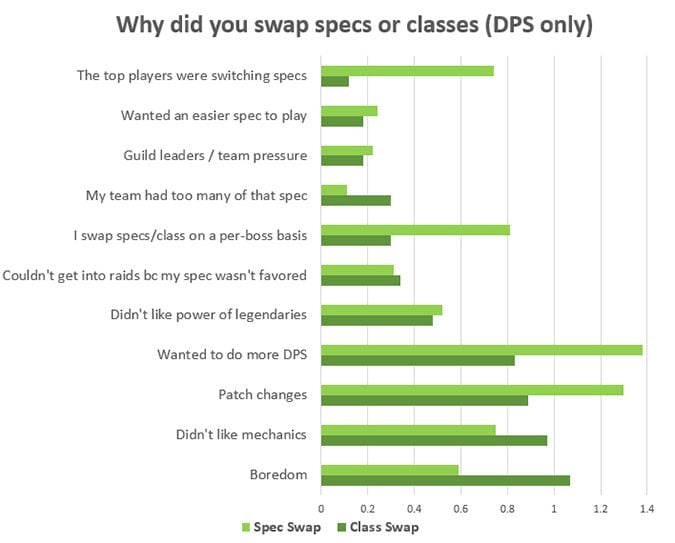
Mythic, Heroic, and Normal players shared the same motivations, with no noticeable differences between each group. However, what did show up is that motivations differed between people who switched specs within a class, and those who switched to a new class altogether.
For example, the results show that people are more likely to swap to a whole new class (“Class Swap”) because they are bored than they are to simply try a new spec within their current class. The results also indicate the spec-swappers are more motivated by increasing DPS and changes during patches than class-swappers.
One result from this chart that surprised me was the difference in responses when swapping to follow the spec trends set by top players. It is much more common when swapping specs to follow the top trends, but barely a consideration when swapping classes.
Are better players more likely to change specs?
{PB} Perhaps only the best players from each raid difficulty are dedicated enough to min-max their character, going so far as to change specs or even classes. If true, that would explain why they had similar motivations.
Turns out… that’s not true. Both high-ranked and low-ranked players were equally likely to swap specs and classes. In fact, more than half of all players have made a change in Legion.
So now it’s time to face the music. I’d be crazy to ignore the evidence. I have finally convinced myself that no matter what difficulty or skill level we play at, we all want to play well and have fun. Our motivations are the same and Mythic players want the same thing out of the game as the rest of us.
So where are we different? We look to our ‘environments’
While our motivations are similar and we’re all trying to play well, one thing that does differ are the boss fights. To illustrate this, let’s look at how differently specs can rank across each difficulty for the same fight. Here’s a Warcraft Logs ranking chart for Krosus:
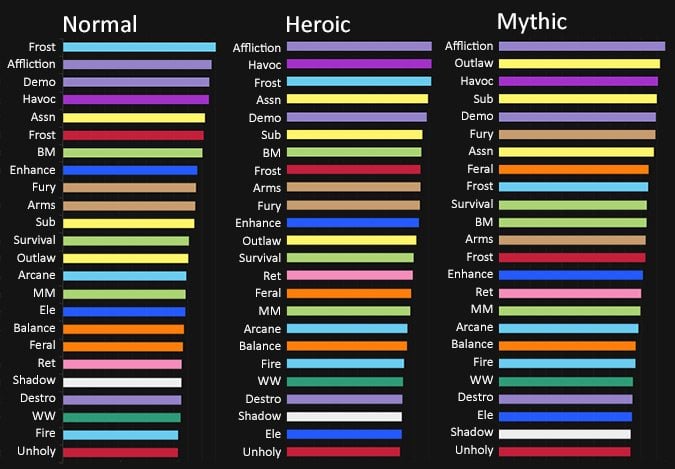
Affliction Warlocks are strong across all raid difficulties. Then we see that Frost Mages take the #1 and #3 spots on Normal and Heroic, but rank 9th on Mythic. How do we explain the different ranks? It comes down to fight mechanics.
On Mythic, you can’t soak all of the pools that spawn, so you get multiple adds. That’s why Frost mages top the charts on Normal and Heroic — they are single-target specialists. They lack in AOE power, making them fall down to lower ranks on Mythic where adds are part of the strategy.
The rankings showed the inverse to be true for Outlaw Rogues. They rank #2 for Mythic, but #12 and #13 on Normal and Heroic, respectively. Since they excel at AOE but are weaker on single targets, they rank high on Mythic and lower for the others.
These differences change how you play and how you gear. It changes your team’s strategy and your individual spell priorities. When you are in the Mythic environment, you have to adapt and play differently than when you’re in the Heroic environment.
Can I put myself in your shoes?
So we have a lot of similarities, you and I. We have similar motivations, we both strive to play well, and we both want to enjoy the class we play. So what if we raid in different environments? It doesn’t matter, right? I fully planned to write a conclusion for this article to let you know that our differences don’t matter.
But I received an email the other day that made me really question that conclusion. The email started out with:
“Hi there. I was a healer prior to Legion, swapped to a Havoc DH, then recently to my Arcane Mage. I’m not new to optimizing a character, but I’m having to do it more. There’s a lot of heavy moment fights in Nighthold. Overall, it’s a learning experience more than anything, because I do care about my character, even though I’m doing LFR and everything dies within seconds. Regardless of the raiding mode, personal character progression is very important to me.”
So she runs LFR, and that’s cool. I appreciate that she tries to improve in LFR as much as I try to in Heroic. We were on the same page and I was ready to help her!
Then while staring at a blinking cursor trying to craft a reply… I realized I didn’t know what to say. I couldn’t come up with good, specific advice because it’s like we’re fighting in two totally different worlds.
As a Heroic raider, I crush LFR. I can spam the same spell over and over and still top the charts. It’s not that I’m more skilled, I just have 30+ iLevels on this person. Dramatically out-gearing the content makes is really, really easy.
I assume she should use a different rotation in LFR than I would in Heroic because like she said, everything dies within seconds. You don’t have time to ramp up on adds, you have to use heavy-hitting spells now. But I don’t know specifically what she should do.
So I filled one email draft after another with smart-sounding things that made me feel like an expert. But I realized I had no evidence to offer her to prove that these things would work. I was relying on the fact that I raid at a higher difficulty, so I must know what I’m doing.
To give her meaningful advice, I started researching the differences between LFR and Heroic boss strategies and rotations. I didn’t have much luck because advice for LFR is totally non-existent.
I decided to try to relate it to what I do know — but in the end, I realized I was not the right person to help her. I had a few generic things that she could improve on, but it wasn’t advice that would make a big impact.
In other words, seek advice from your peers
Most guides are written by top-end Mythic players. And while it seemed to make sense to seek advice from the best players in the highest difficulty, I am starting to think that isn’t the best source for me. Or at least, it shouldn’t be the only source.
A top Mythic player never sees Heroic the way I do. When Nighthold came out, Mythic players jumped into Heroic the first week (before Mythic opened) with 880-890 gear and crushed it. Whereas most Heroic raiders are just finishing up Nighthold now with 890-900 level gear. And guess what, we crush it in that gear, too!
When out-gearing the content, phases end sooner, adds die faster, the fights are shorter. All of that matters. All of that affects my personal strategy and how I gear.
This leaves me wondering how much more valuable advice could be from my own Heroic peers. I tried really hard to help this LFR person, but when I was honest with myself, I had to admit there are a lot of nuances that I can’t pick up on without really raiding alongside her, in similar gear.
Bottom line: We may all have similar motivations for playing, but if you want to improve, try seeking some advice from players doing similar content, rather than focusing solely on advice from Mythic-only raiders.
Please consider supporting our Patreon!
Join the Discussion
Blizzard Watch is a safe space for all readers. By leaving comments on this site you agree to follow our commenting and community guidelines.
 @Zoopercat
@Zoopercat